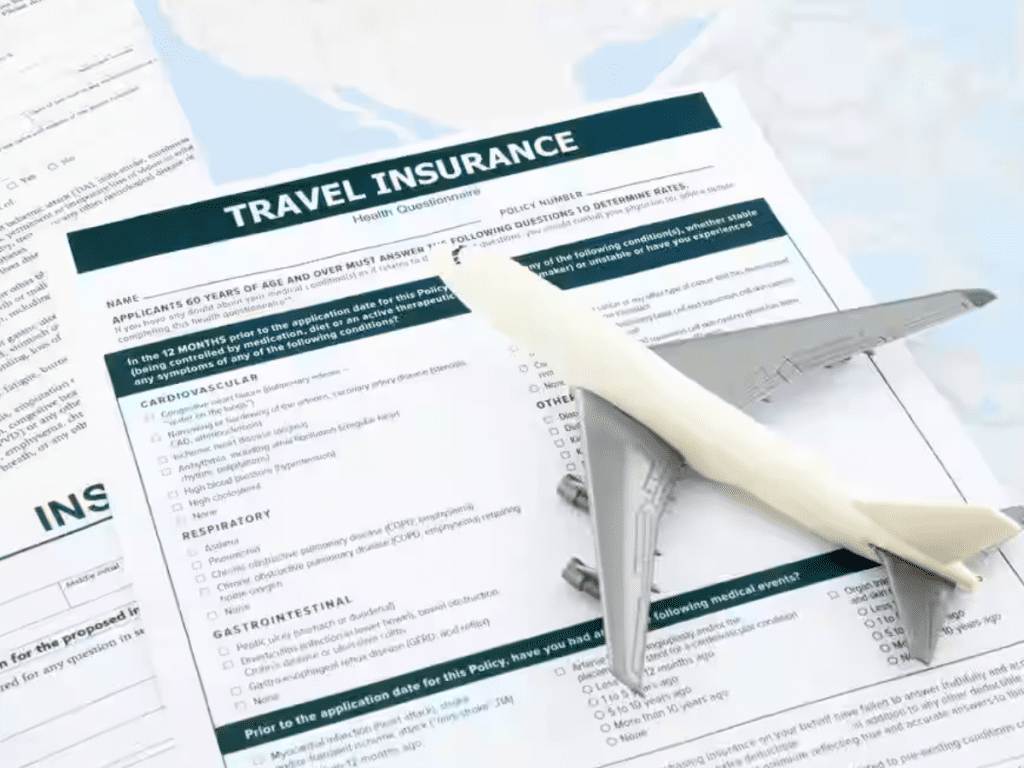Introduction
Traveling can be one of life’s most exciting and rewarding experiences. Whether it’s exploring new cultures, embarking on a thrilling adventure, or simply relaxing on a beach, the joy that comes with travel is incomparable. However, as with any activity, it carries certain risks. One of the most overlooked aspects of travel is travel insurance. While many travelers consider it an unnecessary expense, the truth is that traveling without insurance can expose you to a range of hidden dangers, leading to significant financial losses, logistical nightmares, and even jeopardizing your health and well-being.
Understanding Travel Insurance
Before diving into the dangers of traveling without insurance, it’s essential to understand what travel insurance is. Travel insurance is a policy that provides financial protection against unexpected situations during your trip, such as trip cancellations, medical emergencies, lost luggage, or flight delays. It is designed to cover unforeseen events that may arise while you’re away from home. Travel insurance comes in various types, including:
- Trip Cancellation Insurance: Reimburses the cost of a trip if you need to cancel due to certain covered reasons.
- Medical Insurance: Covers medical emergencies abroad, including doctor visits, hospitalization, and emergency evacuations.
- Baggage Insurance: Protects against the loss or damage of personal belongings while traveling.
- Travel Delay Insurance: Covers additional costs such as meals and lodging in case of travel delays.
- Emergency Evacuation Insurance: Covers the cost of being transported to a medical facility in case of an emergency.
While some travelers might feel that these situations are unlikely, the reality is that travel mishaps are not as rare as they may seem.
The Hidden Dangers of Traveling Without Insurance
1. Medical Emergencies Abroad
One of the most significant risks when traveling is facing a medical emergency. Whether it’s an unexpected illness, an accident, or a pre-existing condition that worsens, medical emergencies can be both frightening and expensive when you’re far from home. In many countries, the cost of healthcare can be exorbitant for foreign visitors, and without insurance, you may be forced to pay out of pocket for even minor treatments.
For instance, if you get sick or injured in a foreign country, and you don’t have insurance, you could end up paying hundreds or even thousands of dollars for treatment. If you need to be airlifted to a medical facility or require specialized care, the costs can escalate even further.
In the United States, for example, the average cost of an emergency room visit can exceed $1,000, and in certain countries, even the cost of a doctor’s consultation could set you back hundreds of dollars. For travelers, especially those venturing into remote regions or countries with higher medical expenses, the absence of insurance could result in a financial catastrophe.
2. Trip Cancellations and Interruptions
Life is unpredictable, and unexpected events can disrupt your travel plans at any time. Whether it’s a family emergency, an unexpected work situation, or political instability in the country you’re visiting, there are countless reasons why you might need to cancel or interrupt your trip. Without travel insurance, you might lose the entire cost of your trip, including flights, accommodations, and prepaid tours or activities.
For example, if a sudden illness forces you to cancel your flight at the last minute, airlines typically do not offer refunds for non-refundable tickets. Similarly, hotel bookings may be lost if you can’t show up, and tour operators may not reimburse you for prepaid activities. Travel insurance with trip cancellation coverage helps protect your investment by reimbursing you for the non-refundable expenses, provided the cancellation is due to a covered reason.
In addition, if your trip is interrupted due to unforeseen circumstances, insurance can help you recover costs for any unused portions of your trip. Without insurance, you may end up paying for a trip that you couldn’t fully enjoy or complete.
3. Lost or Delayed Luggage
Imagine arriving at your destination, only to find that your luggage hasn’t made it. Not only does this disrupt your plans, but it can also leave you stranded without necessary clothing, toiletries, and personal items. While airlines have a responsibility to track and deliver lost luggage, the process can take days, leaving you with the inconvenience of trying to make do without your belongings.
Without baggage insurance, you may have to bear the cost of replacing lost or damaged items yourself. Even if the airline compensates you for delayed or lost luggage, it may not be enough to replace everything you need or to cover the costs of your purchases. Furthermore, there are often limitations on what you can claim, and certain items such as electronics, jewelry, or important documents may not be covered.
Travel insurance, on the other hand, can offer reimbursement for the loss of your luggage, including the cost of replacing essential items, ensuring that your trip remains as smooth as possible despite setbacks.
4. Travel Delays and Missed Connections
Delays and missed connections are a common frustration for many travelers. Whether it’s due to weather conditions, technical issues, or air traffic control problems, flight delays can be a real headache. If you miss a connecting flight or your arrival is delayed, you may face unexpected expenses such as booking a last-minute hotel room or purchasing meals while you wait for the next available flight.
Without travel insurance, you may be left to cover these costs on your own. However, with the right coverage, travel delay insurance can reimburse you for these out-of-pocket expenses. This includes food, lodging, and transportation costs that are incurred as a result of the delay. This peace of mind can make the difference between a frustrating inconvenience and a manageable situation.
5. Emergency Evacuations
In certain situations, you may find yourself in a location that requires evacuation. Whether due to natural disasters, civil unrest, or an illness that necessitates urgent medical transport, evacuations can be both costly and stressful. Emergency evacuation insurance covers the cost of transporting you to a safe location or medical facility, which can often involve a private air ambulance or other forms of emergency transport.
Without this coverage, evacuation costs can be astronomical, running into the tens of thousands of dollars. For travelers visiting remote or high-risk destinations, having emergency evacuation insurance is essential for ensuring safety without facing financial ruin.
6. Liability for Accidents or Damages
Accidents can happen anytime and anywhere, and they may involve third parties or property damage. If you’re involved in an accident while traveling, whether it’s a car crash, an injury to someone else, or damage to rental property, you could be held legally responsible for the costs. Travel insurance often includes liability coverage, which protects you from the financial consequences of accidents or damages caused during your trip.
Without this protection, you may be forced to pay hefty legal fees or compensation for damages, which can quickly exceed your budget and leave you financially vulnerable. Travel insurance can help mitigate these risks, providing you with a safety net in case you find yourself in such an unfortunate situation.
The Hidden Costs of Skipping Travel Insurance
Skipping travel insurance may seem like a way to save money upfront, but the potential costs of not having coverage can far outweigh the savings. Without insurance, you may end up spending far more than you would have paid for a policy. Medical expenses, emergency evacuations, trip cancellations, and lost baggage claims can add up to significant amounts, and in some cases, the financial burden could be catastrophic.
In addition to the financial risks, not having insurance can lead to emotional and psychological stress during your trip. The uncertainty of not knowing how you’ll deal with a medical emergency or a lost flight can turn what should be an enjoyable experience into a nightmare.
Conclusion
Traveling without insurance is like stepping into the unknown without a safety net. While the chances of something going wrong during your trip may seem slim, the consequences of an unexpected event can be severe. Medical emergencies, trip cancellations, baggage issues, and other unforeseen circumstances can result in major financial losses and disrupt your entire travel experience. Travel insurance provides the peace of mind necessary to enjoy your journey without the worry of what might happen if things don’t go according to plan.
While it may be tempting to skip travel insurance to save a few dollars, the hidden dangers of traveling without coverage make it a risk not worth taking. Protecting yourself with travel insurance is an investment in your safety, health, and financial well-being. In the end, the cost of insurance is a small price to pay for the protection it offers, especially when compared to the potential costs of going without it. Don’t let unforeseen events derail your adventure – make sure you’re covered before you hit the road.

